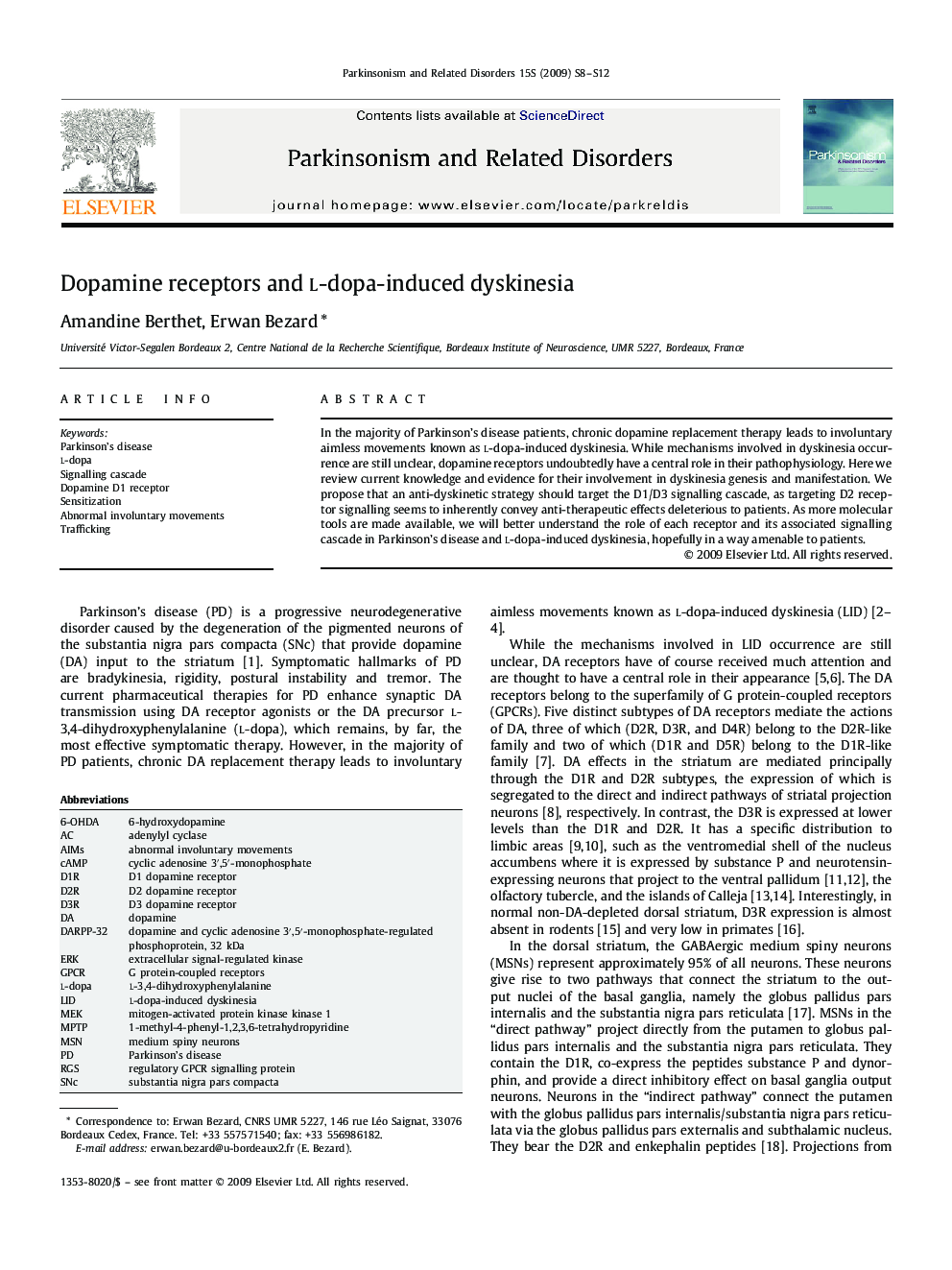| Article ID | Journal | Published Year | Pages | File Type |
|---|---|---|---|---|
| 1921305 | Parkinsonism & Related Disorders | 2009 | 5 Pages |
In the majority of Parkinson's disease patients, chronic dopamine replacement therapy leads to involuntary aimless movements known as l-dopa-induced dyskinesia. While mechanisms involved in dyskinesia occurrence are still unclear, dopamine receptors undoubtedly have a central role in their pathophysiology. Here we review current knowledge and evidence for their involvement in dyskinesia genesis and manifestation. We propose that an anti-dyskinetic strategy should target the D1/D3 signalling cascade, as targeting D2 receptor signalling seems to inherently convey anti-therapeutic effects deleterious to patients. As more molecular tools are made available, we will better understand the role of each receptor and its associated signalling cascade in Parkinson's disease and l-dopa-induced dyskinesia, hopefully in a way amenable to patients.
